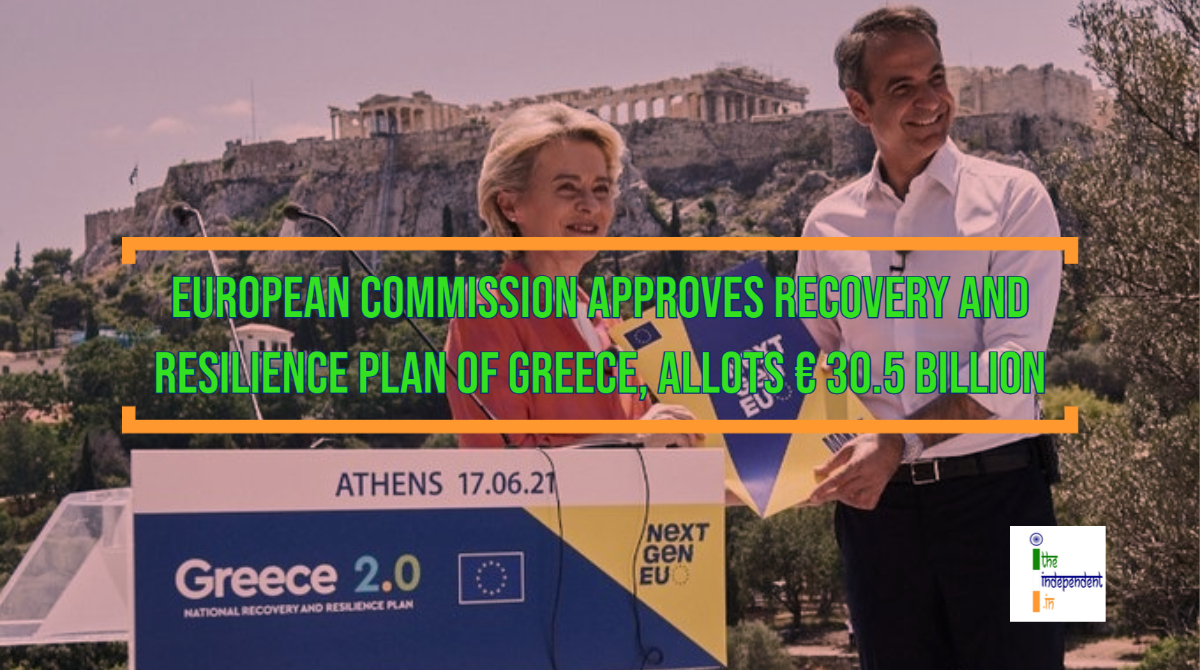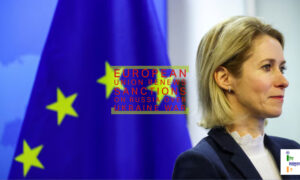
The Greek Recovery and Resilience plan represents a comprehensive and adequately balanced response to the economic and social situation
The European Commission today, i.e., Thursday, June 17, 2021, officially approved the Recovery and Resilience Plan of Greece, allotting them € 30.5 billion for reforms and public investment projects.
The E.U. had announced a € 672.5 billion Recovery and Resilience Facility (RRF) in 2020 to help European economies cope-up with the fight the economic crisis caused by Coronavirus (COVID-19). Of this, € 312.5 billion will be given as grants and € 360 billion in loans. All the 27 Member States are required to submit a recovery and resilience plan to get their share of funds.
The European Commission believes that the Greek plan represents a comprehensive and adequately balanced response to the economic and social situation, thereby contributing appropriately to all the requirements of RRF Regulation.
The plan covers measures that will help Greece move towards a low-carbon energy model, reduce greenhouse gas emissions, increase renewable energy sources, promote energy-efficiency and the energy renovation of buildings, introduce sustainable transport modes and protect the natural environment.
Taking it to twitter, the President of European Commission – Ursula von der Leyen tweeted,
Delighted to give the @EU_Commission’s green light to Greece’s €30.5 billion recovery plan.
— Ursula von der Leyen (@vonderleyen) June 17, 2021
The plan is ambitious and will help build a better future for the Greek people.
It can reshapefor decades ahead. We need to make the best out of it, for the next generations.
Greece will spend 38% of the amount towards green transition, which is in excess of the minimum 37% required by the RRF Regulation. Greece will spend € 1.3 billion to help switch 100,000 residences to sustainable energy. Another € 264 million will be used to install 8,000 charging points for electric vehicles and replace 220 urban transport buses in Athens and Thessaloniki with electric vehicles. It also includes investments to support the further expansion of renewable energy sources in Greece’s energy mix and the construction of electricity interconnections between the Cyclades islands and the mainland. It also covers national reforestation programme that aims to enhance nature and biodiversity protection.
As far as digital transition is concerned, Greece will spend 23.3% of its total allocation to it, as against 20%, which is required by the RRF Regulation. Of this, € 231 will be used to provide 600,000 school pupils and students in low-income families with vouchers to purchase tablets / laptops and install 40,000 interactive learning systems in schools. A further €1.3 billion is allocated for various projects to digitalise the public administration and to facilitate the development of smart cities across Greece.
Digitization of key services like income tax, customs administration, justice, healthcare, social welfare, education and employment services is also a part of the plan. Deployment of very high-capacity networks, in particular 5G and fibre networks, utilization of space technologies and applications to support secure connectivity services will also be done.
The plan provides for measures to reinforce private investments, including for SMEs, improve the business environment, stimulate research & development, innovation, performance and increase employment.
In the medium-term, given its strong focus on investment, employment and productivity-enhancing policies, the implementation of the plan is expected to support the economic recovery and thus contribute to achieving a prudent fiscal position and ensuring debt sustainability in line with the relevant CSR.







